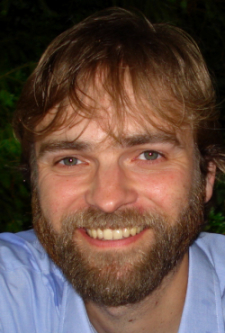Transportation for our Times
a half-baked set of similes and a work in progress
Written by the Associate (and science) editor of Pietisten during an 8 hour snow/ice storm layover at Chicago’s Midway airport in route to a meeting of cell biologists and intending only blessing.

Simile 1: Religion/theology is like navigating the waterways of the Boundary Waters Canoe Area (BWCA) in a handcrafted wood canoe. I’ll return to this last.
Simile 2: Science is like driving a Ferrari through Manhattan. I imagine this endeavor to be frustrating, exhilarating, punctuated with disappointments, eye-opening, at times fulfilling, at other times utterly unsatisfying. The car blends cutting edge technology with creativity, art, and craft. It is a contemporary product of effort over hundreds of years by a vast community, building again and again on progress and experience. It is vulnerable to break downs, often not amenable to easy repair, and an emitter of pollution. However, improved models emerge all the time with new features based on lessons learned from past failures.
The city is filled with diversity, energy, and marvels around every corner. Driving through it reveals new knowledge, resources, and surprises. Novel combinations of things mix together almost constantly. Traffic is heavy and progress is stop and go. Some folks want to race and beat you, others want to join for the ride—adding depth and texture to the enterprise. It’s well worth the ride, but if you’re interested in exploring for life’s meaning by driving a Ferrari through Manhattan, you are better served by alternate transportation.
Simile 3: Intelligent Design is like trying to drive a Ford Pinto missing its engine block through a drainage ditch. You can’t drive a car missing its engine, regardless of make or model. The engine of science is the testing of falsifiable hypotheses. The notion that a designer is responsible for the life we see around us is non-falsifiable and therefore does not have the engine necessary for science. When an astrologer claims I will find love next week because I am Sagittarius and I do, how can I ever know if the claim was true or just a lucky guess? Supporters of intelligent design say, “Teach the controversy?” There is no controversy between a scientific theory and an engine-less, hamstrung notion purporting to be scientific as far as science is concerned because it is not in the realm of science.
The reference to the Pinto, which is certainly loaded, is an attempt to contrast the intellectual energy put into science, including the theory of evolution, by a large community of scientists over generations versus the energy put into the modern notion of intelligent design by a handful of practitioners. And this isn’t intended as a criticism of the intellect of the advocates of intelligent design, but is instead a critique of the broad-sided attacks on the theory of evolution. Ideas like “irreducible complexity” (biological systems are too complex to not need a designer), “gaps in the fossil record,” and dubious interpretations of “punctuated equilibrium” (rapid bursts of change in a species) are red herrings roundly refuted by even-tempered and fair critics, as well as by some ill-tempered and overreaching critics.
The allure of these ideas in attempting to torpedo evolution reflects, in part, a failing of the scientific community (by majority compromised of religious folks by the way) to effectively convey the continuously challenged, changing, and updated theory of evolution and its implications. Everyone should spend some time as a passenger in the Ferrari or preferably behind the wheel to get a feel for it. Unfortunately too many Ferrari drivers are too busy with the ride and aren’t eager to share it with others and this is a sad state of affairs. Ideas like “irreducible complexity” don’t hold a candle to a growing and comprehensive body of data in the fields of molecular evolution, molecular biology, and genetics.
Now to the drainage ditch. I doubt the notion that science/evolution takes away space for God. It instead takes away space for a narrow view that God can be figured out by looking at things in a certain way.
Returning the canoe: My soul delights in the canoe ride of theology and religion that can give life richness and depth. When I navigate the waterways of the BWCA, I am filled with awe and wonder even in a beat up aluminum canoe. And, by the way, why isn’t there a monastery of pietists set-up near these poetic shores? The BWCA is a beautiful, inspiring, powerful, and lonely place. I won’t fill in this simile any more here; I may be preaching to the choir in some respects on this one. But, when my navigating is done and I croak, don’t bury me in Central Park or in a drainage ditch. Put my dust in an old wooden canoe, sing those Swedish hymns that pulse through the generations, light the whole business aflame, and launch it into the cool, redeeming waters.
